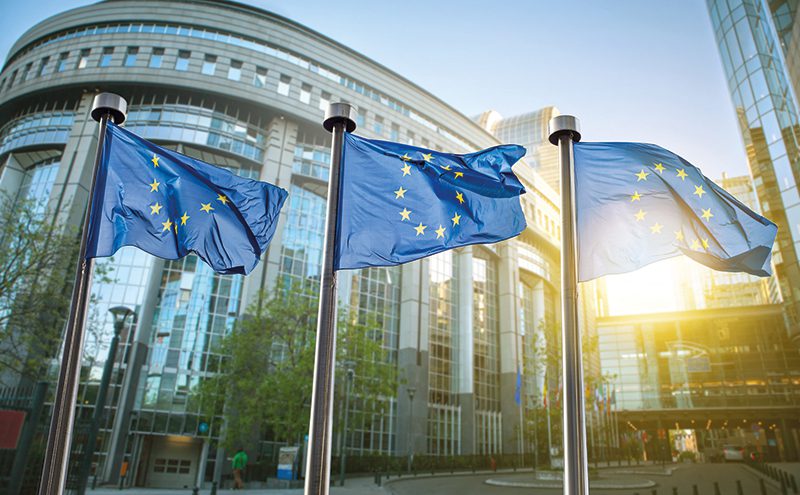On 18 April the European Parliament ratified the EU’s Circular Economy Package, which sets out ambitious new targets for recycling, packaging and landfill reduction.
Environment ministers from the 28 EU member states were expected to formally approve the package in the coming weeks, following which it would be transposed into national legislation within 24 months.
The UK Government was quick to confim that it would include the measures outlined in the package within the EU policy set to be transferred into UK law, since they will have become EU law before the UK leaves.
Targets outlined by the package include an increase in municipal waste recycling rates to 65% by 2030 and a requirement that no more than 10% of waste is diverted to landfill by 2035.
The package also sets out specific targets for different types of waste, including packaging (70%), plastic (55%), wood (30%), ferrous metals (80%), aluminium (60%), glass (75%) and paper and cardboard (85%).
The new legislation also requires that all biodegradable household waste must be collected separately or recycled at home through composting by 2024, and household textiles and hazardous waste must be collected separately by the following year.
Some observers hailed the big-picture nature of the package, that its scope goes beyond waste management, and towards “defining rules taking into account the entire life cycle of a product and [aiming] to change the behaviour of businesses and consumers”, as MEP Simona Bonafè put it, in comments published in Letsrecycle.com.
Commenting on the new targets, recycling equipment supplier Stadler Engineering said the feasibility of meeting these targets depended upon the assumption of responsibility “at all stages of the waste supply chain”.
Recycling firms offer views
The firm’s Ruben Maistry said: “Not only do Materials Recycling Facilities (MRFs) need to ensure they have the right equipment to improve recycling output, but a new approach must be taken to waste collections to boost municipal recyclate quality.”
“Even more challenging and stringent targets mean MRFs throughout the UK and Europe must improve their recycling capability. Without the right equipment, performing at optimum levels, this will not be possible.
“However, the onus shouldn’t just be put on recyclers. Co-mingling of municipal recycling does not bode well for improved recycling rates and without collection uniformity, contamination will remain high.”
Maistry offered the view that a lot more will have to be done if the UK is to have a chance of meeting these new targets.
He concluded: “We need government leadership to revolutionise household collections. The recycling industry should be led from the top. Without this support and a step change in collections, we are likely to fall short of these new targets.”
Recycling firm DS Smith also welcomed the new package, but urged the government to be inspired by the European Parliament’s impetus and to set ambitious targets of its own.
“The UK’s recycling industry has already tackled most of the ‘low-hanging fruit’ and recycling figures are beginning to stagnate. Indeed, while commercial recycling rates are impressive, municipal figures are restricted, in part, by a lack of nationwide consistency.
UK regional disparity
“While there are still areas of the UK which excel at recycling, namely Wales and Scotland, England still sees huge disparity between local authorities. This lack of uniformity in recycling collections, as well as adding a general level of public confusion around recycling, means that recyclate often fails to meet the high quality standards required by reprocessors.
“At DS Smith, we’ve been calling on the government to implement a consistent scheme of separate collections, in line with two of the collection systems identified in WRAP’s Framework for Greater Consistency. Separate collection of recyclables will maximise material quality and minimise the contamination of resources for recycling. Mandatory separate collections of food waste, alongside cardboard and paper segregated from other recyclables, will ensure that a higher percentage and a higher quality of material can be collected, processed and recycled into new products.
The agreement defines interim targets for municipal waste of at least 55% by 2025 and 60% by 2030. At present, UK local authorities are aiming to meet a target of 50% by 2020, but it looks unlikely this will be achieved by all of them, and policy observers say it is not a legal mandate.









